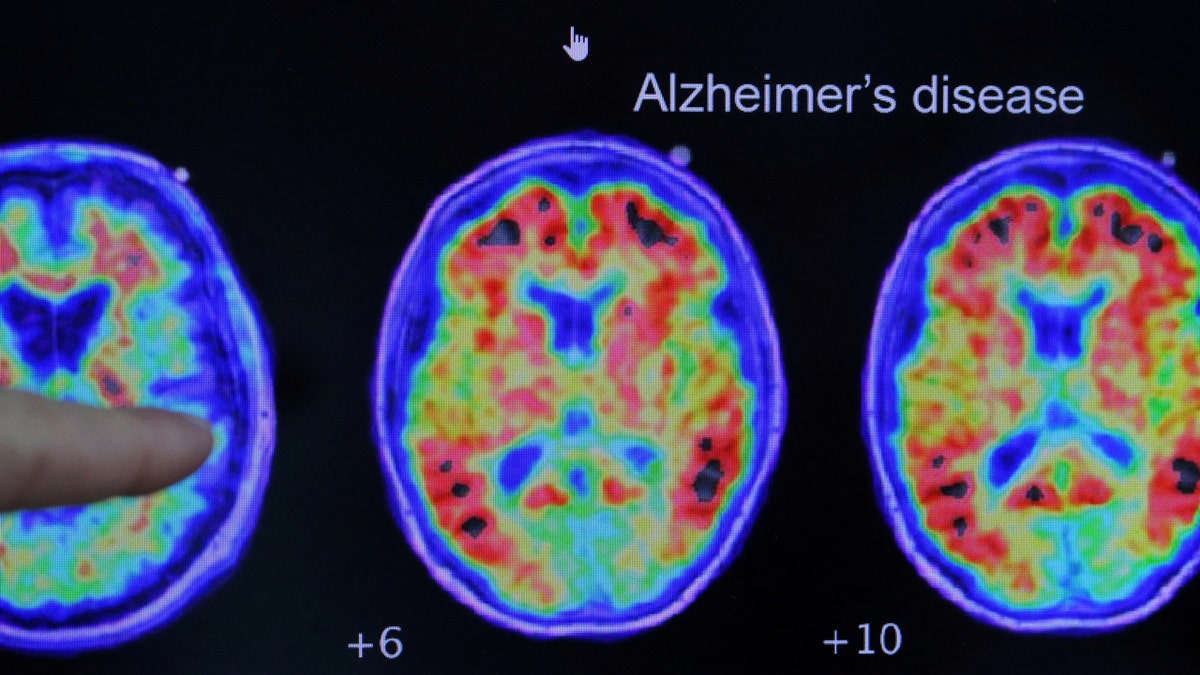Smoking is notorious for causing damage to the lungs — but a recent study confirmed that it’s also harmful to the brain.
Researchers from the Washington University School of Medicine (WashUMed) in St. Louis, Missouri, analyzed the brain scans, smoking history and genetic risk of 32,094 participants of European descent from the UK Biobank database.
Those who smoked one pack daily were found to have decreased brain volume compared to those who never smoked or had smoked fewer than 100 total cigarettes.
AI MODEL COULD HELP PREDICT LUNG CANCER RISKS IN NON-SMOKERS, STUDY FINDS: ‘SIGNIFICANT ADVANCEMENT’
With each additional year of smoking, the shrinkage was greater.
The study, published in the January 2024 issue of Biological Psychiatry: Global Open Science, helps to explain why older people who smoke are at a higher risk of Alzheimer’s disease and other dementias, according to the researchers.
Smoking is notorious for causing damage to the lungs, but recent research confirmed that it is also harmful to the brain. (iStock)
“People who smoke are more likely to have deterioration in gray and white matter, which provides a possible explanation as to why 14% of global Alzheimer’s disease cases could be attributable to cigarette smoking,” they wrote in the study findings.
FIRST NEW ‘QUIT-SMOKING’ DRUG IN 20 YEARS SHOWS PROMISING RESULTS IN US TRIAL: ‘HOPE AND EXCITEMENT’
“Up until recently, scientists overlooked the effects of smoking on the brain, in part because we were focused on all the terrible effects of smoking on the lungs and the heart,” said senior author Laura J. Bierut, M.D., the Alumni Endowed Professor of Psychiatry, in a press release from WashUMed.
“But as we’ve started looking at the brain more closely, it’s become apparent that smoking is also really bad for your brain.”

Those who smoked one pack daily were found to have decreased brain volume compared to those who never smoked or had smoked fewer than 100 total cigarettes. (iStock)
It has long been known that aging is linked to a gradual reduction in brain volume, and this study shows that smoking speeds up that process, the researchers noted.
“This is important as our population gets older, because aging and smoking are both risk factors for dementia,” noted Bierut.
“There’s one thing you can change to stop aging your brain and putting yourself at increased risk of dementia, and that’s to quit smoking.”
One positive finding was that kicking the habit can prevent the loss of additional brain tissue — but the shrinkage can’t be reversed.
“You can’t undo the damage that has already been done, but you can avoid causing further damage,” said first author Yoonhoo Chang, a graduate student at WashUMed.
SHOULD YOU BE SCREENED FOR LUNG CANCER BASED ON NEW GUIDELINES FOR HIGH-RISK PATIENTS?
“Smoking is a modifiable risk factor. There’s one thing you can change to stop aging your brain and putting yourself at increased risk of dementia, and that’s to quit smoking.”
Fox News Digital reached out to the study authors for additional comment.
Impact of toxins on aging
Dr. Brett Osborn, neurosurgery section chief at St. Mary’s Medical Center in West Palm Beach, Florida, was not involved in the WashUMed study but shared his reaction to the findings.
While aging — and some age-related diseases — can’t be prevented, Osborn noted that our lifestyle choices can accelerate or decelerate the process.

Dr. Brett Osborn, neurosurgery section chief at St. Mary’s Medical Center in West Palm Beach, Florida, shared his reaction to the study findings. (Dr. Brett Osborn)
“We can age gracefully in part by choosing to avoid toxins such as alcohol and smoking, both of which increase the production of toxic free radicals, also known as oxidative stress,” he told Fox News Digital.
When someone smokes, the doctor explained, the person’s blood vessel linings are “bombarded” by free radicals, which are electrons that cause cell damage. That impacts not only the heart and lungs, but also the brain.
“When you smoke, the brain takes a hit due to the induced vascular damage,” Osborn said. “Over time, the brain shrinks, and this is evident on MRI.”
BE WELL: QUIT SMOKING (OR ENCOURAGE SOMEONE ELSE TO KICK THE HABIT)
The new study confirms not only the correlation between reduced global brain volume, but also causation, said Osborn.
“It is not that those with reduced global brain volume tend to smoke from a genetic standpoint, but it is that those who smoke cause their brains to atrophy,” he said.
“Smoking does terrible things not only to the body but also to the brain, and in some parts, disproportionately more than others.”

“Smoking does terrible things not only to the body but also to the brain, and in some parts, disproportionately more than others,” a neurologist told Fox News Digital. (iStock)
The regions most affected by smoking are the frontal cortex (involved in executive function, memory input and mood), cerebellum (coordination), corpus callosum (information bridge between the two hemispheres), and amygdala (emotional response and memory), Osborn pointed out.
“It is also well-established that hippocampal volume, or the volume of our primary center, is reduced in daily smokers,” he said. “It should be no surprise, therefore, that there is an increased incidence of Alzheimer’s disease in smokers.”
“Smoking does terrible things not only to the body but also to the brain.”
While other organs, such as the lungs, can recover after a person quits smoking, there are no subsequent increases in brain volume, said Osborn.
“The brain demonstrates a lower capacity for recovery, so the best you can hope for is a deceleration in induced damage when you stop,” he said. “So, the sooner you quit, the better.”

The study helps to explain why older people who smoke are at a higher risk of Alzheimer’s disease and other dementias, according to the researchers. (REUTERS/Brian Snyder/File Photo)
“Remember, staying healthy lifelong is about making the right choices to mitigate the cellular damage that is the hallmark of the disease we call aging, to which no one is immune,” Osborn added.
“Do everything in your power to slow it down, rather than accelerating the process by smoking.”
One out of every five U.S. deaths can be attributed to smoking, per the Centers for Disease Control and Prevention (CDC).
Tips for kicking the habit
Dr. David Seitz, a New York-based physician with a specialty in addiction medicine, previously shared with Fox News Digital some tips for kicking the habit.
The first step is to remove all traces of cigarettes and other forms of smoking.
It’s also important to have a strong support system in place, the doctor said.

Some people find that it’s easier to gradually wean themselves off smoking instead of quitting cold turkey. (iStock)
He also suggested seeking out healthier activities to fill the gap, such as walking or jogging, listening to a relaxing playlist, meditating or going to a yoga class.
Some people find that it’s easier to gradually wean themselves off smoking instead of quitting cold turkey.
CLICK HERE TO SIGN UP FOR OUR HEALTH NEWSLETTER
“This could involve gradually reducing the number of cigarettes smoked each day until eventually giving up completely, cutting back to a certain number of cigarettes per week or focusing on specific dates when you need to be completely smoke-free,” Seitz said.
For those who are unable to stop smoking on their own, Seitz recommended seeing a doctor for assistance.
CLICK HERE TO GET THE FOX NEWS APP
“Your doctor can provide helpful information about how to quit smoking, prescribe medications that may help, and also monitor your progress along the way.”
For more Health articles, visit www.foxnews.com/health.





